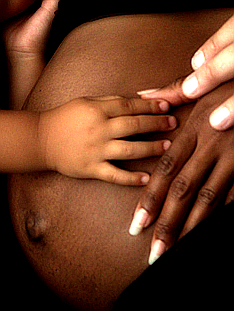Pregnancy and culture balance checked in WA
 A new study is aimed at influencing the ways that maternity services can support Aboriginal women during pregnancy and birthing.
A new study is aimed at influencing the ways that maternity services can support Aboriginal women during pregnancy and birthing.
The multi-faceted project led by a Murdoch University researcher will investigate current cultural provisions for Aboriginal women and look at ways they can be improved.
“Understanding how best urban maternity services and staff can support the culturally important philosophy of ‘birthing on country’, which ensures a spiritual connection to the land for an Aboriginal mother and her baby, is central to the project,” said lead researcher Rhonda Marriott, Professor of Aboriginal Health and Wellbeing at Murdoch University.
“Birthing on country means an Aboriginal mother giving birth to her child on the lands of their ancestors. So in Perth, Nyungar women using metropolitan services can be considered to be birthing on country,” Professor Marriott explained.
“Many Aboriginal women residing in other parts of Western Australia, particularly remote areas, are required to transfer to a metropolitan hospital for the birth of their baby because of a possible medical risk, such as gestational diabetes.
“This results in them birthing off country and many Aboriginal people believe this breaks the child’s spiritual place in the community raising emotional, social and spiritual issues for both mother and child.
“This study will investigate the cultural and other needs of women who are required to birth off country and recommend how their needs can be met.”
Research from 2009 by two investigators in Professor Marriott’s study team found that only nine of 51 maternity services in Western Australia were culturally responsive to the needs of Aboriginal women, and just 200 of 1800 women had access to culturally relevant services.
An audit of graduate and post-graduate midwifery education at the time confirmed few courses included comprehensive cultural awareness training.
Professor Marriott said initiatives implemented since that research, such as the Moort Boodjari Mia maternity care service in north metropolitan Perth, had been designed to provide a culturally secure antenatal service to Aboriginal women and families and anecdotal evidence suggested it was having some success. But there is, as yet, no published research that illustrates the experience for Aboriginal women has changed for the better.
“This is what we hope to change with this research,” said Professor Marriott.
“The findings of this study will clarify how models should best be embedded in education, policy and practice as the research team and partners in this study are in a position to initiate and influence policy changes at senior state and national administrative and organisational levels.”
The project is funded by just under $1 million from a National Health and Medical Research Council (NHMRC) grant and contributions from 13 stakeholders including the Telethon Kids Institute and Murdoch University.







 Print
Print